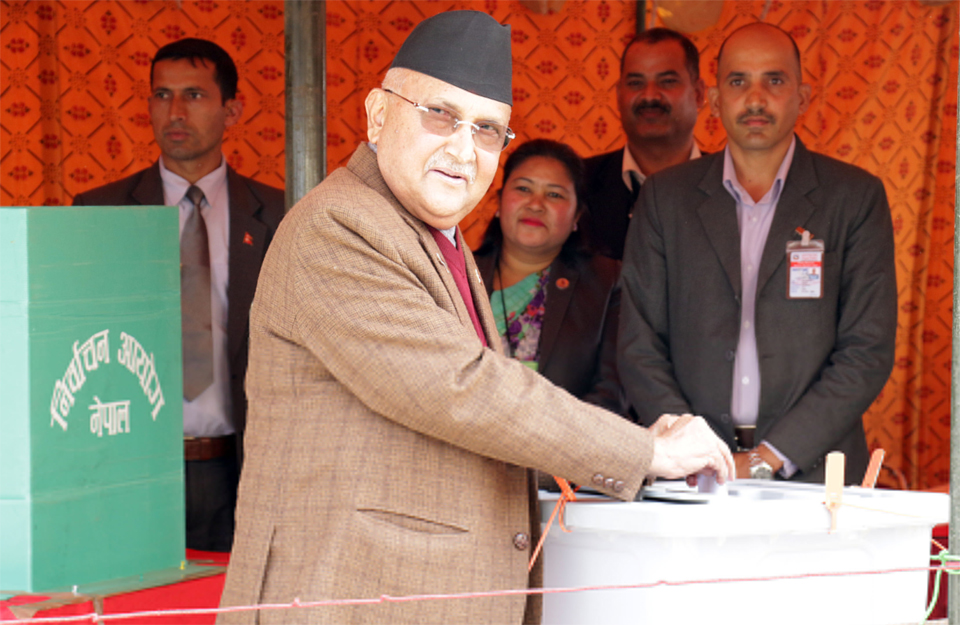
OR
Bibeksheel Sajha, Naya Shakti abstain from presidential poll
Published On: March 13, 2018 02:16 PM NPT

Kathmandu, March 13: The Bibeksheel Sajha Party has decided not to take part in the elections of a new President and Vice President.
In a press statement today, Bibeksheel's State Assembly parliamentary party province 3 leader Ramesh Poudyal shared the information about this.
The party has three members elected under the proportional representation system in Province 3's State Assembly. Earlier, the party handed the rights to take a decision on the matter to the province-level leadership which met Monday, deciding not take part in the both elections.
"The Bibeksheel Sajha is in favour of a directly elected prime minister and a constitutional president. In the parliamentary practice, the role of constitutional president should be neutral, impartial and above the partisan interests. But, some of the decisions had crossed the jurisdictions," the statement reads.
Naya Shakti Nepal is in favor of directly elected president. Releasing a press statement, Party coordinator Baburam Bhattarai said, "both parties picked their cadre as the President's candidate. This is not appropriate. Hence, we are not voting.”
You May Like This

Sajha, Bibeksheel unify to become Bibeksheel Sajha Party
KATHMANDU, July 25: Newly-emerged alternative political parties -- Bibeksheel Nepali Dal and Sajha Party -have unified to become Bibeksheel Sajha Party... Read More...

Naya Shakti in Parliament as Naya Shakti, TTPN-D unify
KATHMANDU, Feb 13: Naya Shakti Party led by former Prime Minister Baburam Bhattarai and the Tharuhat Tarai Party Nepal (Democratic)... Read More...

Naya Shakti forms 7 committees for poll preparation
KATHMANDU, March 31: Naya Shakti Nepal led by former prime minister Baburam Bhattarai has formed seven committees to prepare the party... Read More...







Just In
- NRB to provide collateral-free loans to foreign employment seekers
- NEB to publish Grade 12 results next week
- Body handover begins; Relatives remain dissatisfied with insurance, compensation amount
- NC defers its plan to join Koshi govt
- NRB to review microfinance loan interest rate
- 134 dead in floods and landslides since onset of monsoon this year
- Mahakali Irrigation Project sees only 22 percent physical progress in 18 years
- Singapore now holds world's most powerful passport; Nepal stays at 98th











Leave A Comment